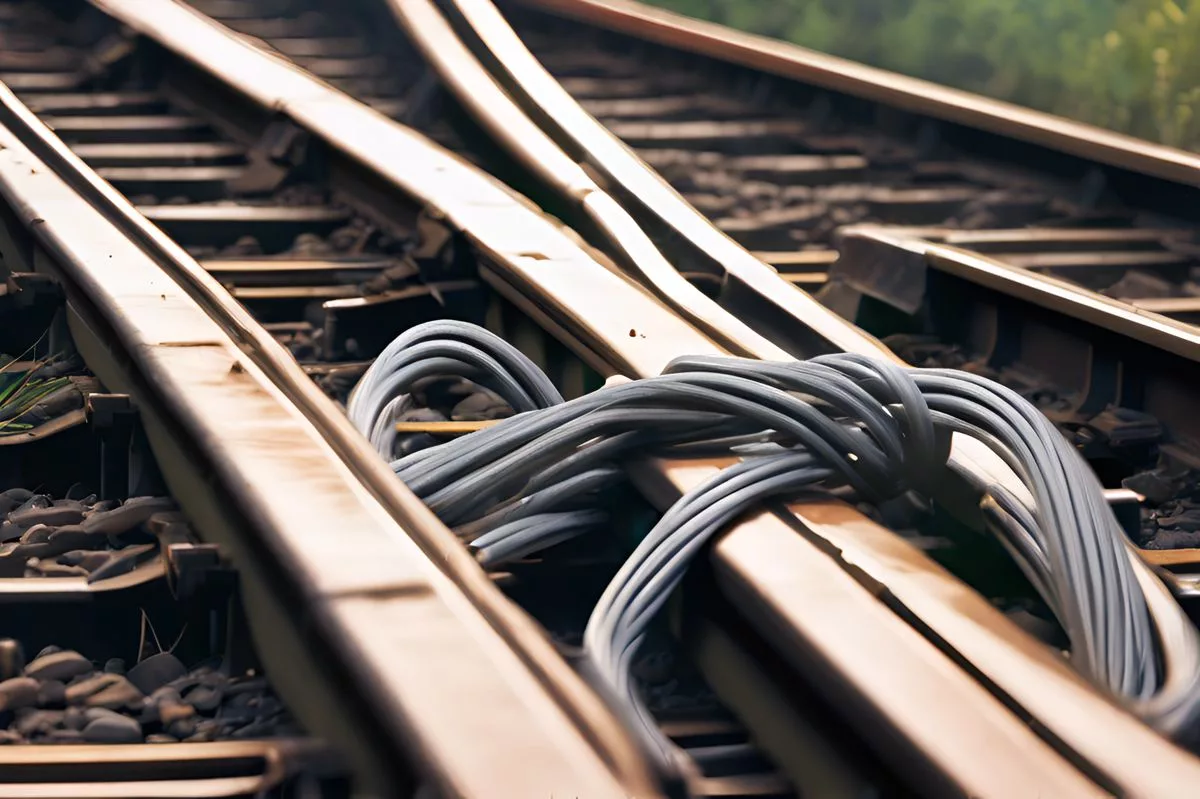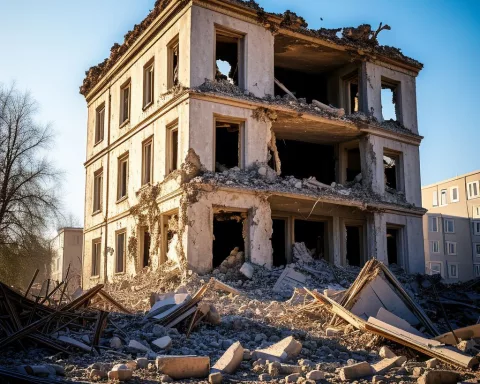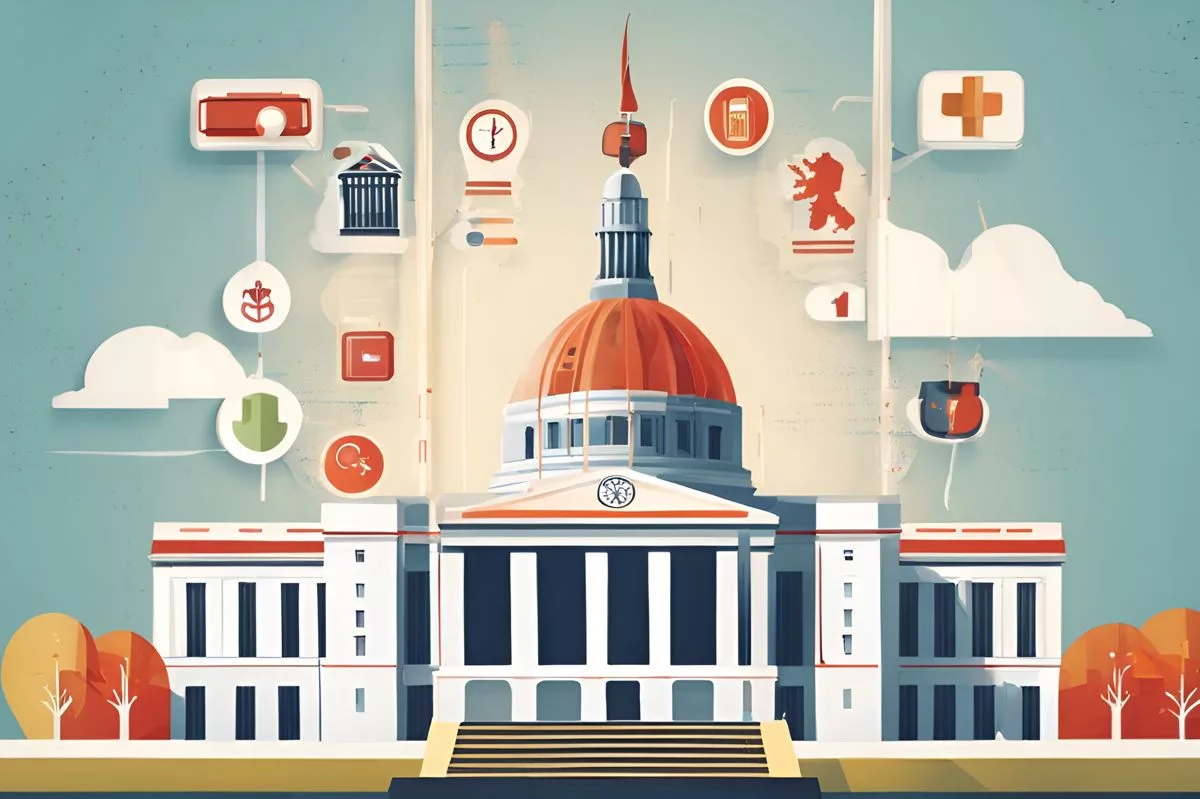SCOPA, the Standing Committee on Public Accounts, plays a vital role in making sure South Africa’s public enterprises, like Eskom and PRASA, are held accountable. They check how these organizations run and spend money, visiting sites to understand their challenges better. Eskom struggles with power supply issues, while PRASA faces troubles in the rail system. Through their visits, SCOPA aims to push for better management and transparency, helping these essential services work efficiently for all South Africans. Their mission is all about ensuring that public resources are used wisely and effectively.
What is SCOPA’s role in South Africa’s governance?
The Standing Committee on Public Accounts (SCOPA) ensures accountability and fiscal responsibility in South Africa. It scrutinizes public enterprises like Eskom and PRASA, conducting oversight visits to evaluate operational performance, governance reforms, and cost-saving strategies, ultimately fostering transparency in public sectors.
Accountability in Action: SCOPA’s Role in Governance
In the dynamic political and economic environment of South Africa, oversight is crucial. The Standing Committee on Public Accounts (SCOPA) takes the lead in driving accountability and ensuring fiscal responsibility. As a parliamentary body, SCOPA’s mandate involves scrutinizing public enterprises, and its upcoming series of oversight visits underscores this commitment. These visits will specifically target two prominent state-owned enterprises: Eskom, the national power utility, and the Passenger Rail Agency of South Africa (PRASA). This initiative highlights SCOPA’s dedication to fostering transparency and enhancing efficiency across public sectors.
Eskom has long stood as a pivotal element of South Africa’s infrastructure, though its journey has been fraught with challenges. Issues such as operational inefficiencies and financial mismanagement have plagued the utility. Eskom’s story is intertwined with the nation’s modern history, reflecting themes of struggle and resilience. The Medupi power station, a massive project, embodies both ambition and controversy. Envisioned to augment the country’s energy capacity, Medupi faced various hurdles, from technical difficulties to environmental concerns, illustrating the complexity of large industrial endeavors.
SCOPA’s forthcoming visit to Eskom continues a legacy of oversight initiated by the 6th Parliament. Previous engagements in 2019 and 2022 highlighted persistent issues, sparking calls for substantial reforms. This latest visit will concentrate on critical areas such as operational performance, governance reforms, and cost-saving strategies. Engaging directly with Eskom’s Board and management, SCOPA seeks comprehensive insights into their recovery plans, emphasizing the need for accountability and efficient governance to rectify past missteps and ensure future compliance.
PRASA Under the Lens: Addressing Rail Sector Challenges
Alongside Eskom, PRASA finds itself at a pivotal moment. As the primary rail transport agency, its efficiency directly impacts the lives of millions of South Africans. Recent audit reports by the Auditor-General for the 2022/23 financial year cast a shadow on PRASA, revealing numerous issues including procurement irregularities and expenditure mismanagement. These concerns resulted in a qualified audit opinion, necessitating urgent remedial measures. SCOPA’s oversight visit to PRASA will focus on these critical issues, demanding answers and pushing for concrete recovery strategies.
PRASA’s narrative mirrors broader systemic challenges within the public sector. The agency is not just a transportation provider; it plays a crucial role in economic facilitation and connectivity. However, its trajectory has been hindered by inefficiencies and scandals. The involvement of the Special Investigating Unit underscores the depth of scrutiny needed to tackle ingrained malpractices. These investigations highlight the essential role of vigilance and reform in public institutions, serving as a powerful reminder of the need for continued oversight and accountability.
SCOPA’s itinerary for PRASA includes multiple key sites, such as the Umjantshi House and the bustling Naledi Station. This extensive tour of Johannesburg’s rail network offers SCOPA members a firsthand understanding of PRASA’s operational challenges. By engaging with the Board and executive management, SCOPA aims to extract clear recovery strategies, governance improvements, and cost-control plans, ensuring that PRASA aligns with national economic goals.
Broader Implications: Oversight’s Role in National Progress
South Africa’s transport and logistics sector plays a significant role in shaping the nation’s socio-economic landscape. The sector is defined by its dynamic nature and the challenges it faces, where operational efficiency can drive growth, and its absence can hinder progress. SCOPA’s oversight is critical in creating an environment where state entities like Eskom and PRASA can function optimally. The focus on these two entities highlights their importance in the national conversation and their potential impact on the country’s development trajectory.
As SCOPA prepares for these vital engagements, it stands ready to uphold the principles of transparency and accountability. The committee’s work dovetails with broader themes of reform and renewal, reflecting South Africa’s ongoing journey toward systemic integrity. Through its oversight visits, SCOPA aims to ensure that Eskom and PRASA align with the nation’s aspirations for efficiency and excellence in public service.
In conclusion, SCOPA’s oversight visits to Eskom and PRASA represent more than routine audits; they embody the spirit of accountability essential to democratic governance. These initiatives serve as a reminder of the crucial role oversight plays in safeguarding public interests and advancing sustainable development. As the nation observes, SCOPA’s efforts will continue to illuminate the path toward a more accountable and efficient public sector.
“`markdown
What is SCOPA’s primary mission in South Africa?
SCOPA, the Standing Committee on Public Accounts, is tasked with ensuring accountability and fiscal responsibility within South Africa’s public enterprises. This includes conducting oversight visits to scrutinize organizations like Eskom and PRASA, evaluating their operational performance and governance practices.
How does SCOPA evaluate public enterprises like Eskom and PRASA?
SCOPA evaluates public enterprises by conducting oversight visits to assess their operations, governance reforms, and cost-saving strategies. During these visits, SCOPA engages with the Boards and management teams of these entities to gather insights into their challenges and recovery plans.
Why are Eskom and PRASA under SCOPA’s scrutiny?
Eskom and PRASA are critical to South Africa’s infrastructure and public service delivery. Eskom has faced ongoing power supply issues and operational inefficiencies, while PRASA has been grappling with procurement irregularities and expenditure mismanagement. SCOPA’s oversight aims to address these challenges and promote transparency and accountability.
What specific challenges are Eskom and PRASA facing?
Eskom struggles with operational inefficiencies, financial mismanagement, and power supply issues that affect the entire nation. PRASA, on the other hand, has encountered procurement irregularities and audit queries that have cast doubt on its operational integrity. Both entities face a pressing need for effective governance and reform.
How does SCOPA’s work impact South Africa’s socio-economic landscape?
SCOPA’s oversight plays a crucial role in ensuring that state entities like Eskom and PRASA operate efficiently. By promoting accountability and transparency, SCOPA helps safeguard public resources, which ultimately supports economic growth and the well-being of South Africans.
What are the upcoming initiatives SCOPA is planning?
SCOPA’s upcoming initiatives include a series of oversight visits to Eskom and PRASA, focusing on operational performance, governance improvements, and cost-control strategies. These visits are intended to foster dialogue with management and push for necessary reforms to enhance service delivery and accountability in the public sector.
“`












